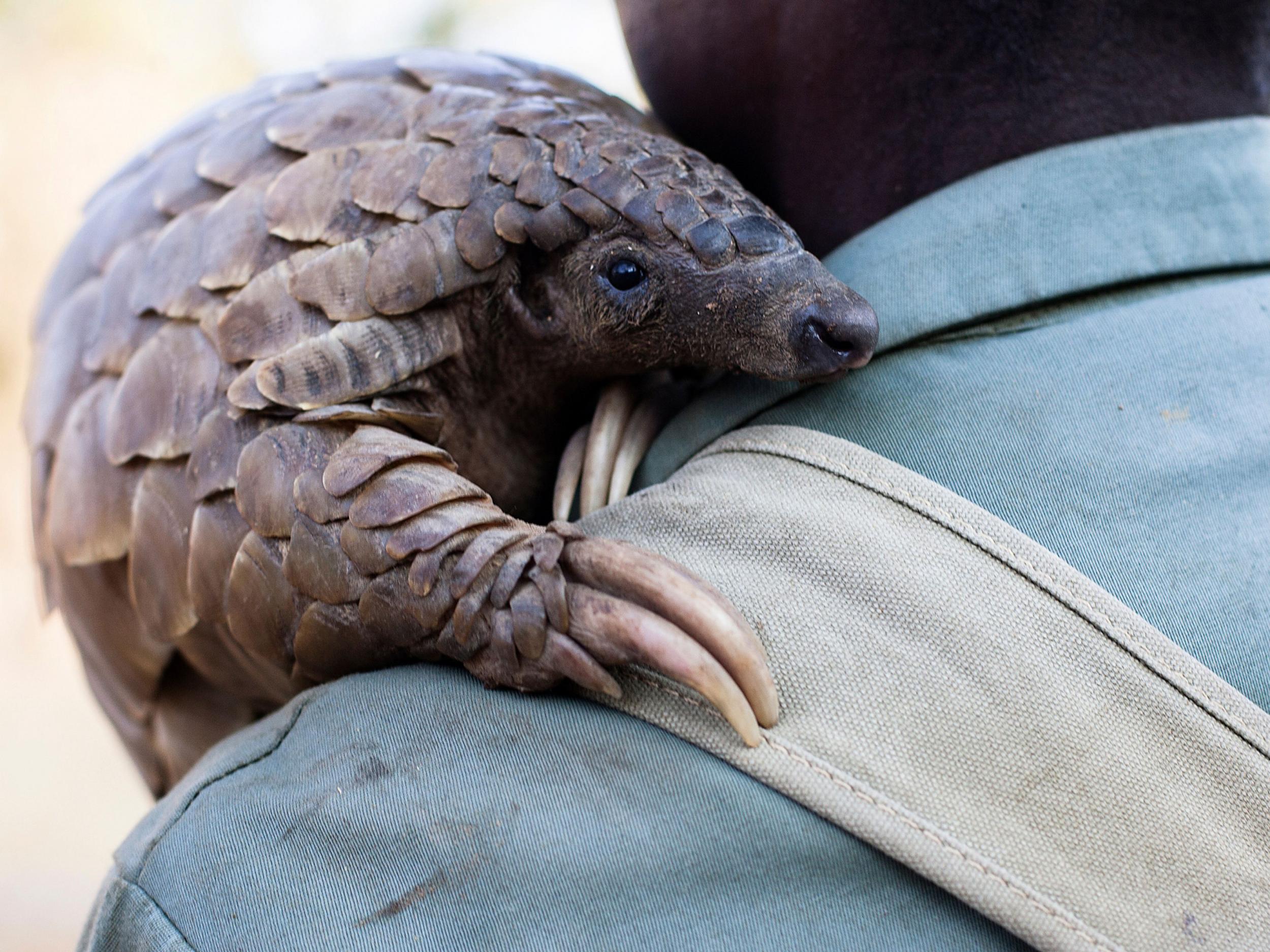Pangolins: World conservation day aims to raise awareness of most trafficked mammal
A survey has revealed the lack of knowledge surrounding plight of elusive 'scaly anteaters', millions of which are killed every year to satisfy demand for their scales and meat

Your support helps us to tell the story
From reproductive rights to climate change to Big Tech, The Independent is on the ground when the story is developing. Whether it's investigating the financials of Elon Musk's pro-Trump PAC or producing our latest documentary, 'The A Word', which shines a light on the American women fighting for reproductive rights, we know how important it is to parse out the facts from the messaging.
At such a critical moment in US history, we need reporters on the ground. Your donation allows us to keep sending journalists to speak to both sides of the story.
The Independent is trusted by Americans across the entire political spectrum. And unlike many other quality news outlets, we choose not to lock Americans out of our reporting and analysis with paywalls. We believe quality journalism should be available to everyone, paid for by those who can afford it.
Your support makes all the difference.Around 300 pangolins are poached every day, making these unusual animals the most illegally trafficked mammals in the world.
Also known as “scaly anteaters”, pangolins are found throughout Asia and Africa, but their numbers are dwindling as a result of poaching for international trade.
Pangolins are prized for their meat, which is considered a delicacy in China and Vietnam, and their scales, which are used as ingredients in traditional Asian medicine.
Practitioners believe scales are capable of treating a range of ailments including asthma, rheumatism and arthritis.
Populations of Asian pangolins have already been reduced massively, and now traffickers have turned their attention to the species living in Africa.
A ban on global trade in all pangolin species was introduced in 2016, but it has not been enough to stem the demand for these shy animals.
Unlike the poaching of elephants and rhinos for their tusks and horns, the hunting of pangolins is still not widely known.
As World Pangolin Day provides “an opportunity for pangolin enthusiasts to join together in raising awareness about these unique mammals”, WWF has conducted a study to establish the level of pangolin knowledge among the British public.
Pangolin poaching: the facts
- A pangolin is taken from the wild every 5 minutes
- Up to 2.7 million pangolins are harvested illegally every year in central Africa
- There are 8 species of pangolin, 4 in Africa and 4 in Asia
- All 8 species are protected under national and international laws
- In 2016, an international agreement banned the global trade in pangolins
In a survey of 2000 people in the UK, only 8 per cent of participants were able to identify pangolins when shown pictures of them.
This lack of knowledge contrasts with the prominence pangolins have achieved among conservationists as the scale of the illegal global trade has become apparent.
“In species conservation circles they have become much more visible in recent years,” Dr Colman O’ Criodain, WWF wildlife practice policy manager told The Independent.
“That’s partly because they are so cute, and partly because they really do represent a lot of the issues around poaching and wildlife trade governance and so on.”
“They are very endearing animals, and it’s one of those cases where the defences that they evolved to defend themselves in nature are actually working against them when it comes to humans,” said Dr O’ Criodain.
“Their main way of defending themselves is to roll into a ball, and then a poacher can just pick them up.”
As pangolin scales are light and easy to transport, Dr O’ Criodain described their trafficking as “a relatively easy form of wildlife trade to indulge in”.
He compared the value of pangolin scales to elephant ivory or heroin. The high demand for pangolin scales has seen prices soar from £8.50 for a kilogramme of scales in the 1990s to around £360 today.
The criminal networks behind the trade in pangolins work rapidly and efficiently to ensure a good supply of these valuable creatures. It is thought that 27 new global trade routes are being used every year to smuggle them, or their body parts, into Asian markets.
WWF's pangolin awareness survey
- 8% of those surveyed could name pangolins when showed a photo
- Over half of respondents thought the pangolin was an armadillo
- Only 6% of respondents correctly identified pangolins as the world’s most trafficked animals
- 2000 people in the UK were surveyed
The wildlife trade monitoring network TRAFFIC found last year that Indonesia, one of the last strongholds of the critically endangered Sunda Pangolin, is losing up to 10,000 pangolins a year to poachers.
According to research conducted by TRAFFIC, 20 tonnes of pangolins and their parts are being trafficked every year.
One of the great tragedies of the global pangolin crisis is that so little is known about these elusive animals. Most are nocturnal and live in trees, and there is relatively poor data on total numbers worldwide.
“In October the UK will host a major conference on the illegal wildlife trade, a hugely important event where we hope to see global leaders make strong commitments to put an end to wildlife crime once and for all,” said Dr O’ Criodain.
“Countries must put in place and enforce stronger laws and penalties, abide by global trade bans, address corruption and reduce demand for illegal wildlife products. The illegal wildlife trade is a global issue that can only be destroyed with global efforts.”
Join our commenting forum
Join thought-provoking conversations, follow other Independent readers and see their replies
Comments